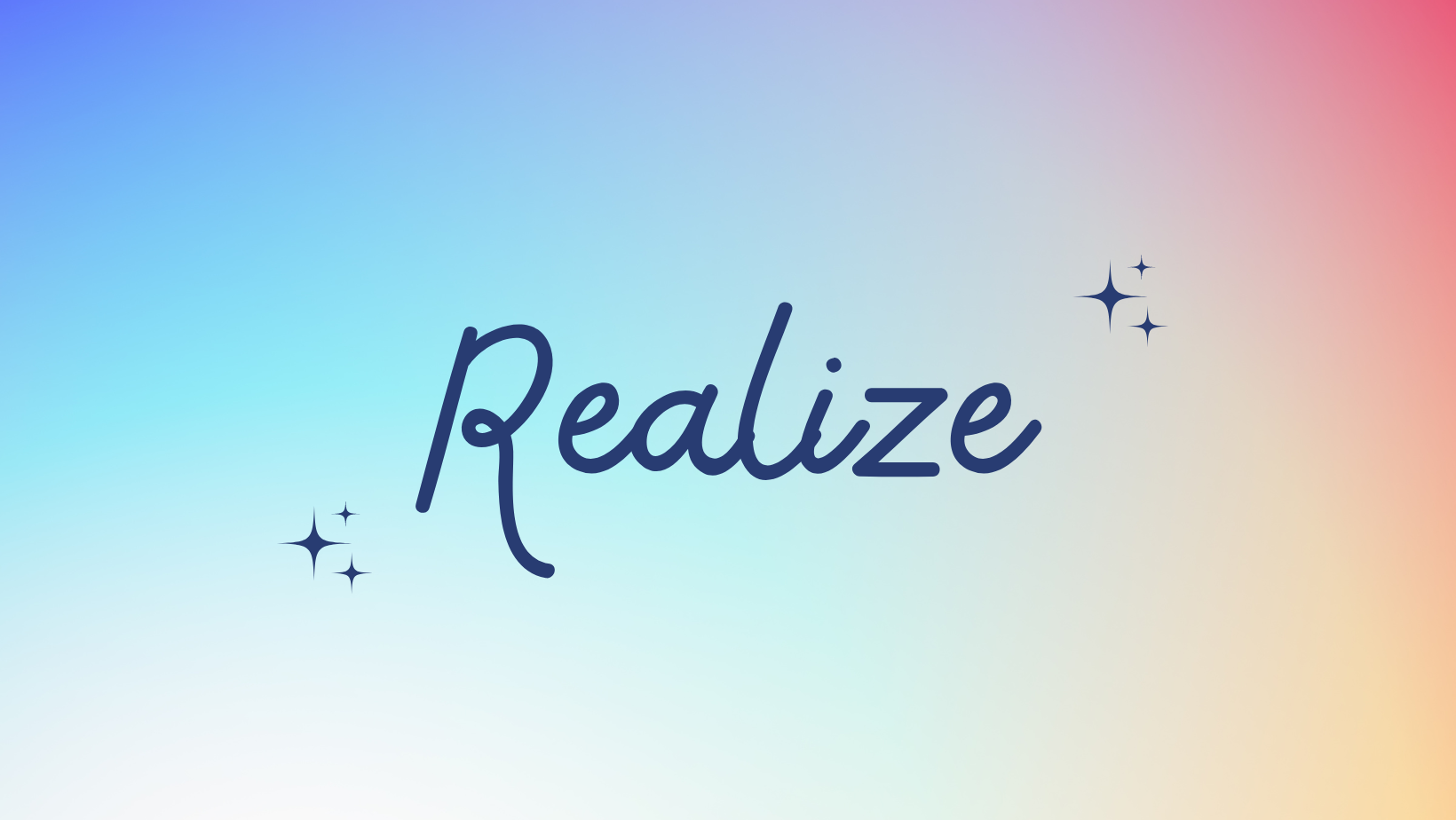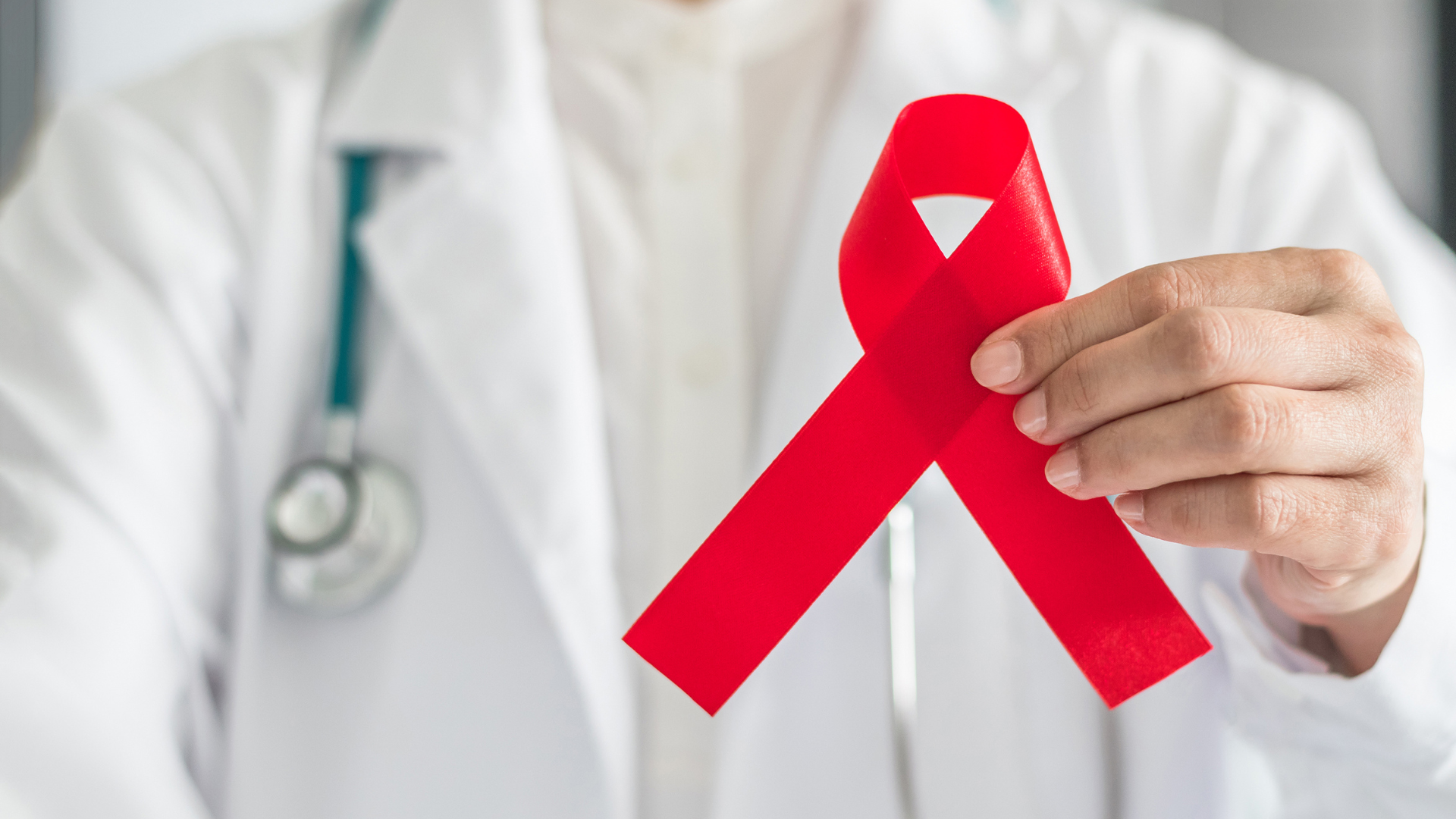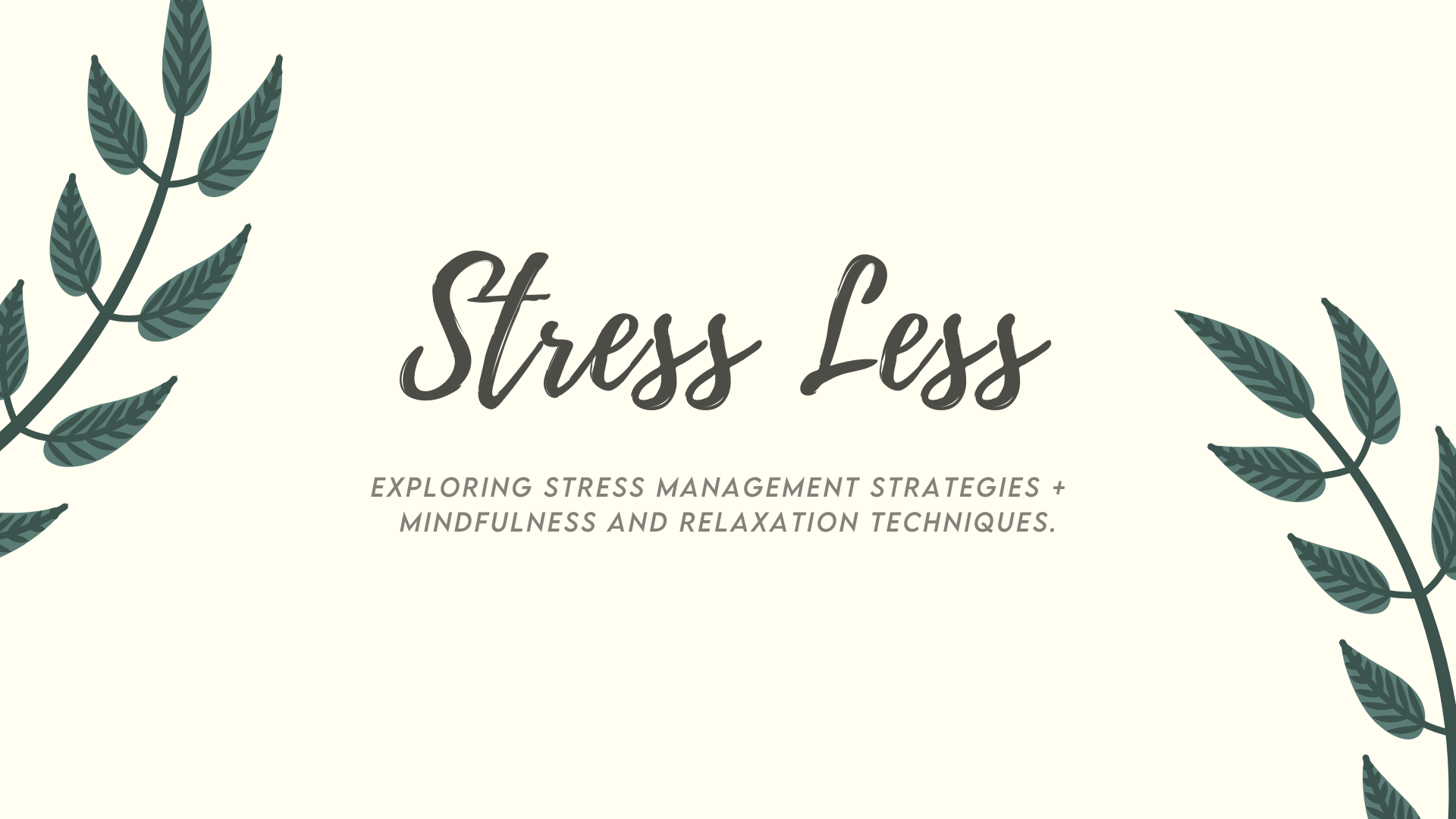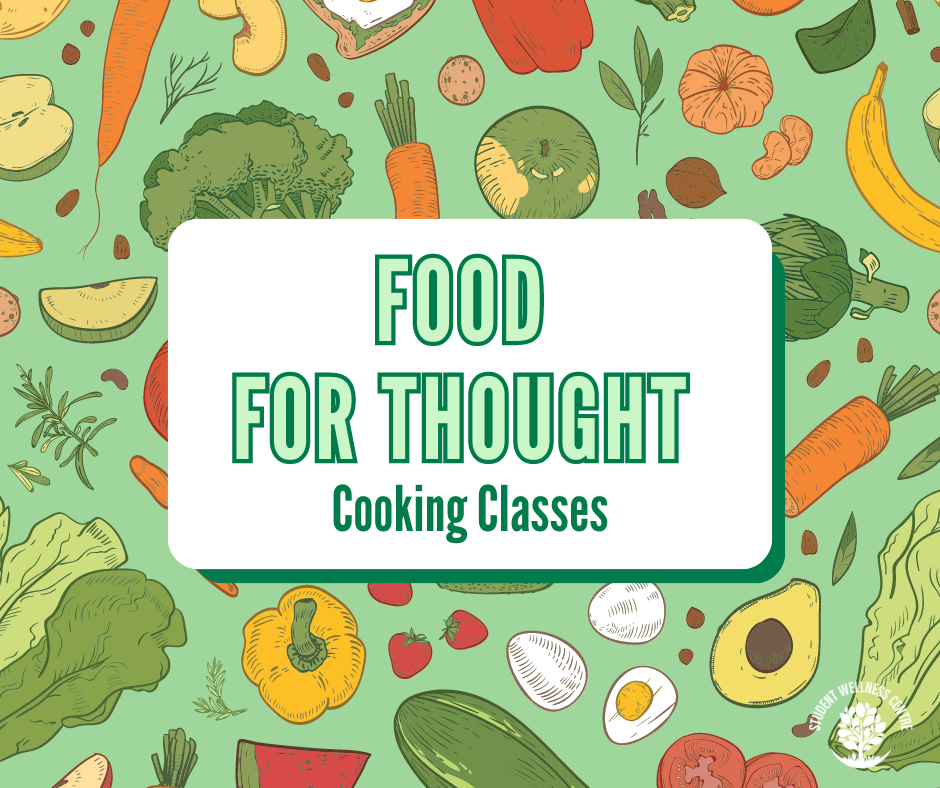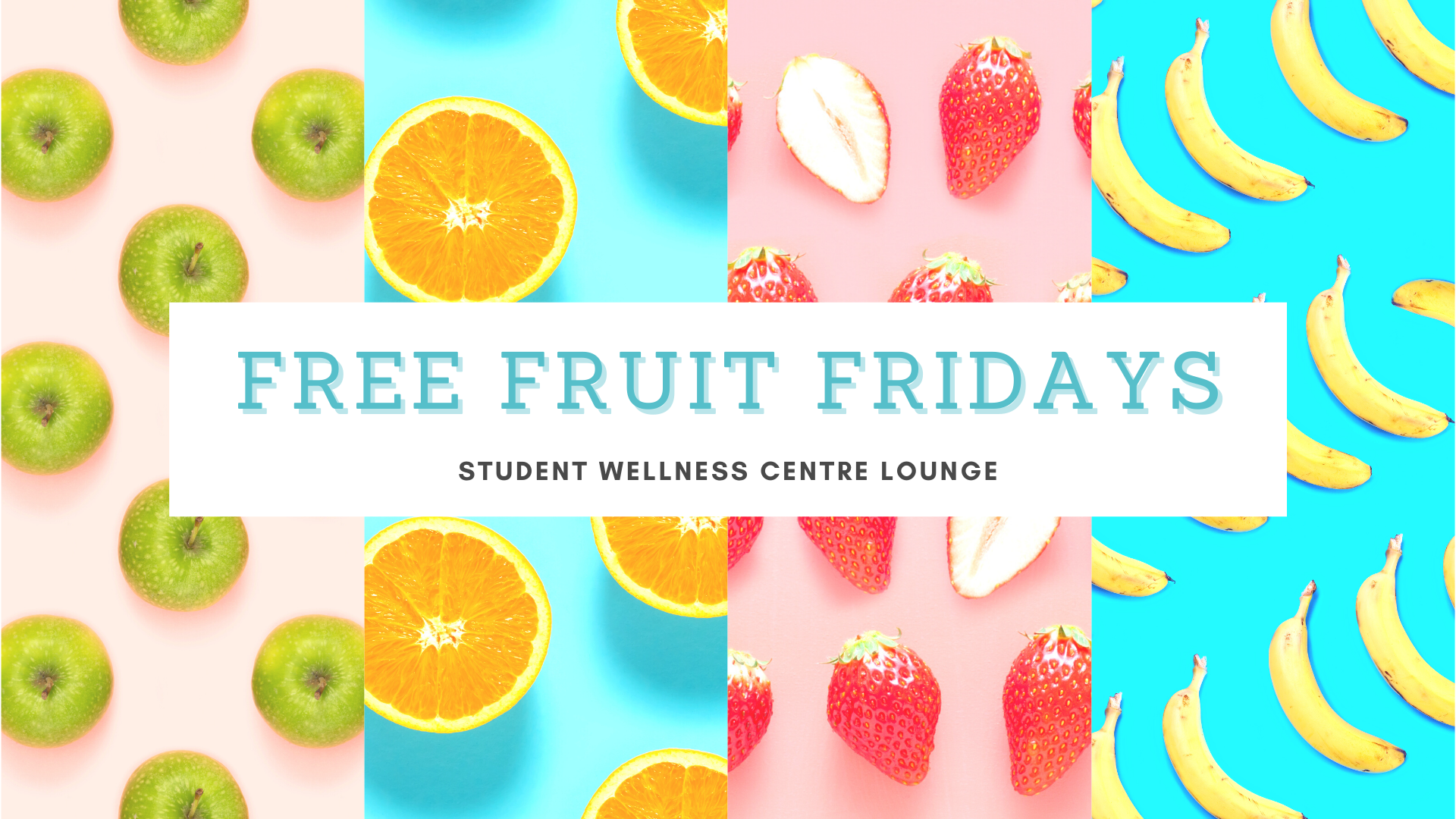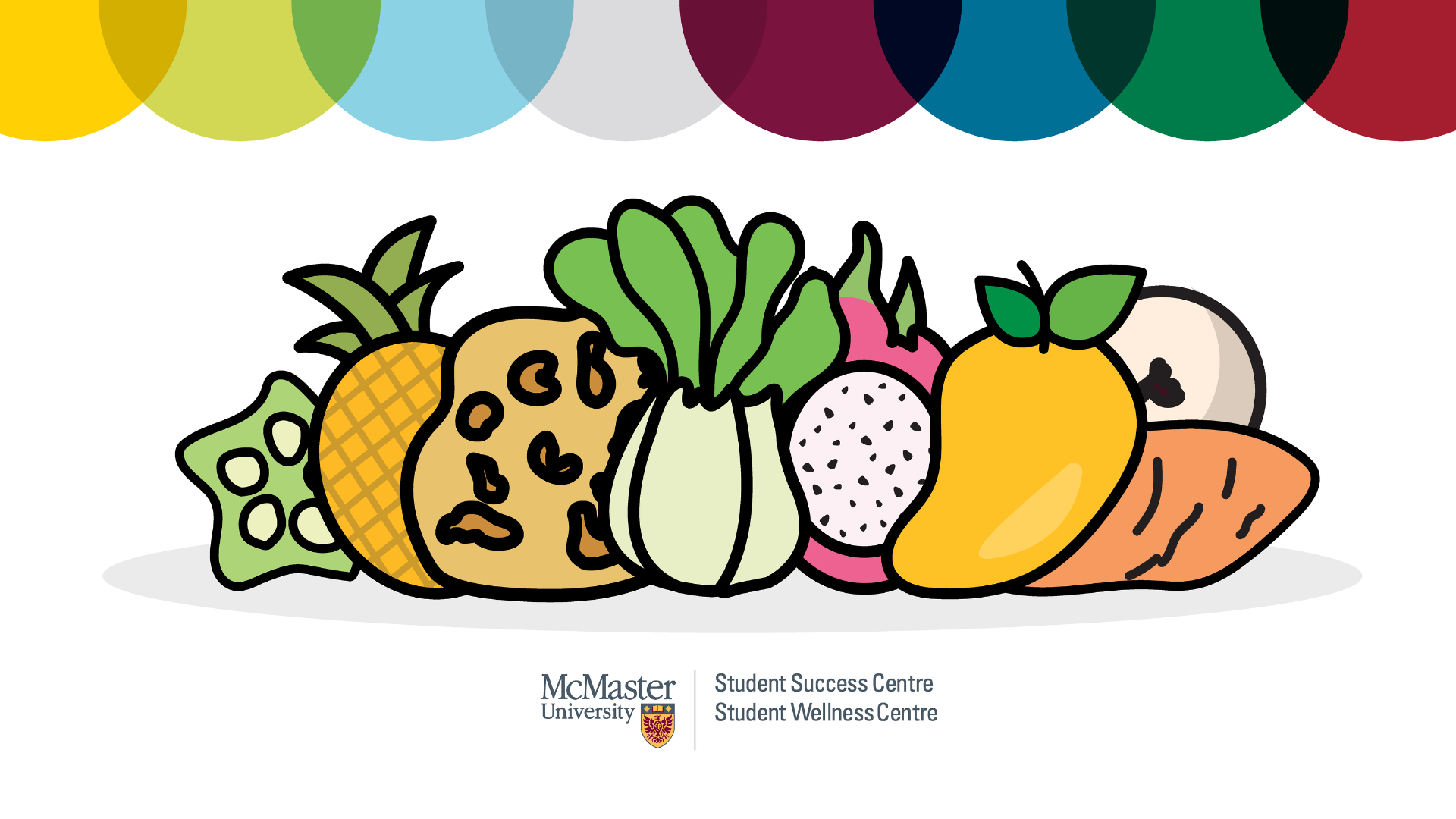Wellness Lounge
Information Box Group

PGCLL 201
The lounge space is open for all students and is a place to relax, enjoy tea, read, pick up wellness resources, study, and chat with friends. Come by to ask staff and volunteers about our wellness resources, programs, and services.
In this space, you’ll find free tea, a Seasonal Affective Disorder (SAD) lightbox, an origami station, a colouring corner, and lots of campus and community informational pamphlets.
Workshops & Trainings
Information Box Group
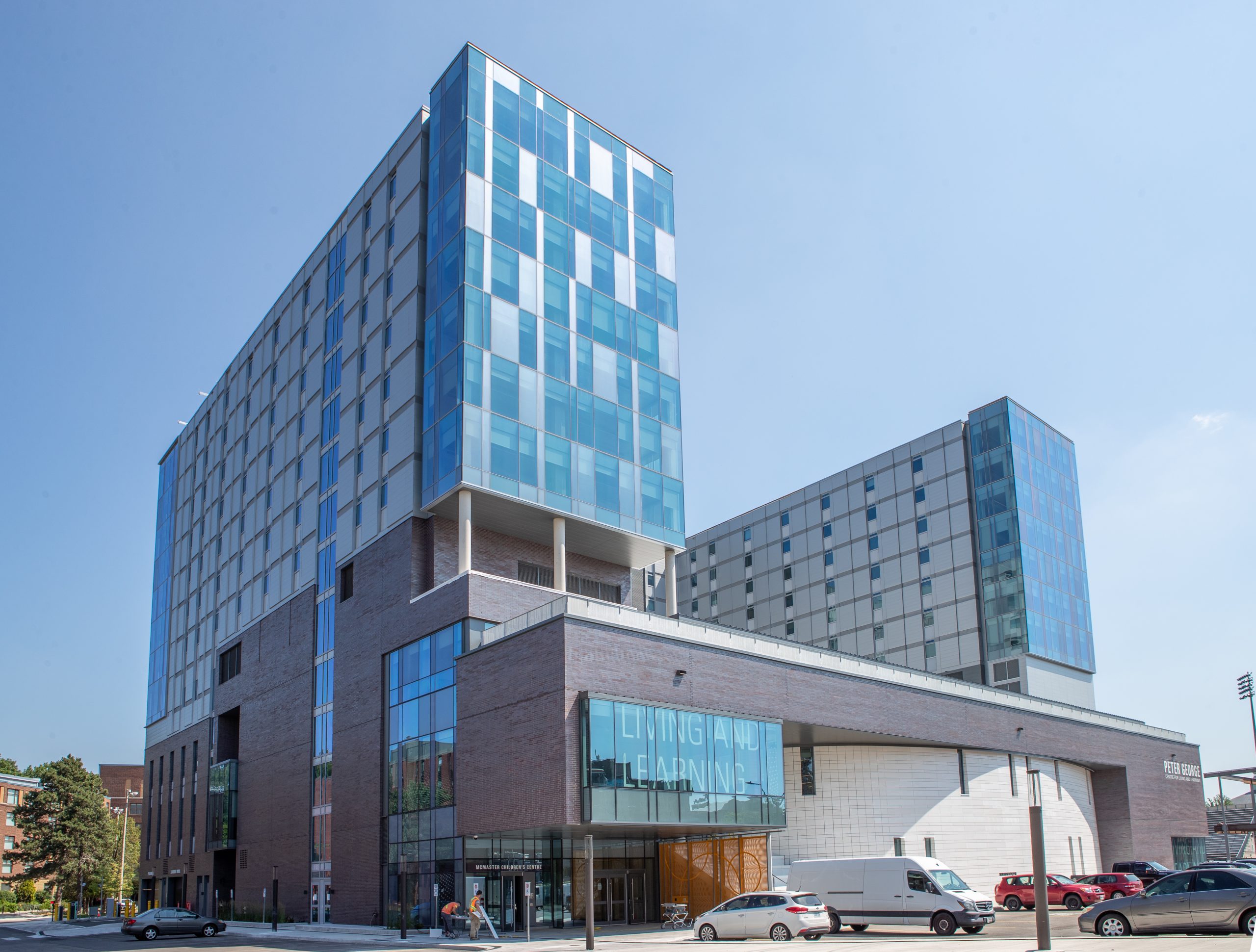
Book a Workshop / Training with the Health Promotion Team
Popular offerings on campus include;
- Mental health 101
- safeTALK (suicide alertness)
- Self-care and community care
- Healthy relationships
- Responsible drinking and cannabis use
- Other related wellness topics
If you are interested in setting up a workshop for your club, event, or group, please contact us at wellness@mcmaster.ca.
Wellness Programs
Check out the awesome programs run by our Health Promotion team below!
Looking for a full list of counselling and wellness programs? Visit our Programs page.
Information Box Group
Peer Educator Volunteer Program
With support from the Health Promoters at the SWC, volunteer as a Peer Educator to engage students with their wellness and contribute to a healthier campus community.
The Peer Educator program is a student-run health promotion initiative for undergraduate and graduate students overseen by the Student Wellness Centre’s Education team. Each year, Peer Educators develop and implement wellness programs to enhance campus well-being focusing on the topics of; Active Living, Food Literacy, Mental Health, Sexual Health, Substance Use, and Graduate Wellness.
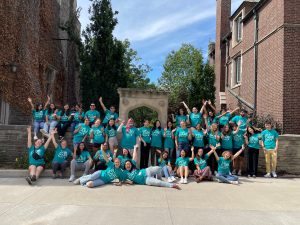
JOB DESCRIPTION
Peer Educators are responsible for delivering workshops, providing evidence-based health information, and promoting wellness-related resources available on and off campus. Accordingly, students on our Wellness Outreach Team are ambitious, proactive, and driven toward making a difference on campus.
Learn More: Peer Educator job description
Applications for the 2024-2025 Academic Year are now OPEN, and are due February 14 (11:59pm, EST). Click this link to access the application form.
Learn More About Our Initiatives
Active Living projects promote movement and activity in an accessible manner amongst all McMaster students, given the incredible scientific support a more active lifestyle has on one’s mental health.
Topics and activities include:
- Physical literacy
- Incorporating activity into student life
- Creating fun and social activities for students to get active
- Exam ‘brain breaks’ with #MacMoves
- Walks through Cootes Paradise through our Walk in Nature Days program
Food Literacy projects aim to increase students’ knowledge of food and nutrition and equip them with the skills needed to prepare food while considering taste, health, culture, and affordability.
Topics and activities include:
- Food skills
- Food security
- Farmer’s Market tours
- Gardening activities
- Cooking sessions through our Food for Thought program
Mental Health projects work to increase students’ knowledge of the many factors that contribute to their own state of mental wellness.
Topics and activities include:
- Resilience
- Self-care
- Building caring and supportive communities
- Stigma reduction
Sexual Health projects focus on educating the McMaster community about the different aspects of sexual health, and what it means to promote a sex-positive environment.
Topics and activities include:
- Healthy relationships
- HIV and STI prevention and testing
- Consent
- Sexual orientation and gender identity
- Gender and sexuality
- Reproductive rights
Substance Use projects use a harm reduction lens to reduce the social, psychological, and biological harms associated with substances like alcohol, cannabis, and tobacco.
Topics and activities include:
- Alcohol, cannabis, and vaping education
- Party kit-making
- Smoke-free campus cigarette butt litter audits
- Normalizing the choice to not use substances
Graduate Wellness
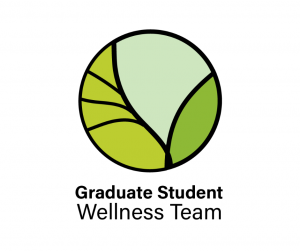
Graduate Wellness Newsletter
Every two weeks, our Graduate Wellness Outreach Team releases the Graduate Wellness Newsletter, filled with event listings, information about campus and community resources, and tips on improving your own wellness.
Sign up to receive the Graduate Wellness Newsletter here
graduate wellness instagram
Check out the Graduate Wellness Instagram here, be sure to give them a follow!
graduate wellness program: grad chats
https://wellness.mcmaster.ca/program/gradchats-drop-in-for-graduate-students/
Campaigns
Check out past campaigns & events run by the Health Promotion team below.
Information Box Group

Triple C Farm Visit
The farm visited campus to help students de-stress. Goats, alpacas, donkeys and more were there for students to interact with.

Sunset & Hot Cocoa Walk
The SWC Peer Educator team hosted a sunset and hot cocoa walk on to help students learn about our active living programming while enjoying hot cocoa and the sunset.

Naloxone Training
Hamilton Public Health and and the Student Wellness Centre offered free training on the signs of overdose, overdose response myths, safe use and how to give the Naloxone. Free Naloxone kits were provided.

Halloween Spook Sacks
The SWC Peer Educators hosted this harm reduction event for Halloween 2023. Each spook sack that was handed out was complete with harm reduction resources, snacks, drinks, and sexual health supplies.

Spooktacular Spirits: Mocktail Event
Residence Life, and the Student Wellness Centre hosted a Halloween themed Spooky Mocktail Night. It was a fang-tastic night of spooky mocktails, candy, prizes, and fun activities while learning about safer substance use!

Welcome Week: Be Kind Campaign Learn More
For Welcome Week 2023 we curated the Be Kind Campaign where we encouraged students to BE KIND to their mind, body, and others!

Pride Month: Movie Night
Celebrated queer joy while we watch Saving Face, a heartwarming film about two women breaking through cultural expectations for love.

Pride Month Social: Guided Painting Session
The gathering featured an artist guided painting session, snacks, games, and the opportunity to connect with other McMaster Students who are also a part of the 2SLGBTQIA+ community.
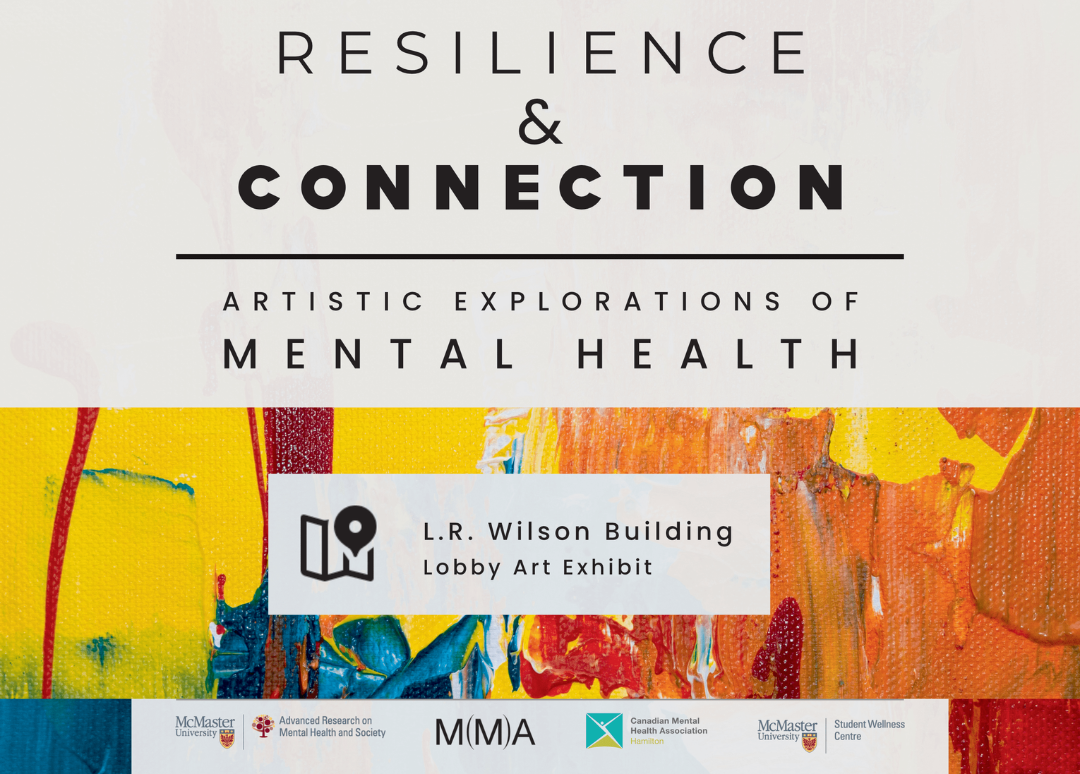
Resilience and Connection: Artistic explorations of mental health
A showcase of student art, brought to you by the Student Wellness Centre, the McMaster Museum of Art, and the Advanced Research on Mental Health and Society (ARMS) initiative, in collaboration with the Canadian Mental Health Association – Hamilton Branch.
Displayed in the lobby of the LR Wilson building during Winter & Spring semesters of 2023. Undergraduate and graduate student poetry, paintings, collages, & digital art were featured.

Black History Month 2023
February is Black History Month (BHM) – a time to celebrate the contributions and achievements of Black and African diasporic peoples. The Student Wellness Centre is excited to announce the following initiatives: Door Decorating with Wellness, Black Excellence Fatigue: A Conversation with Dr. Andrews, and our Pioneers of Black Mental Health display.

Meet A Friend, Make a Valentine
A fun speed-friending evening where participants got to know each other and make valentine’s cards for loved ones.
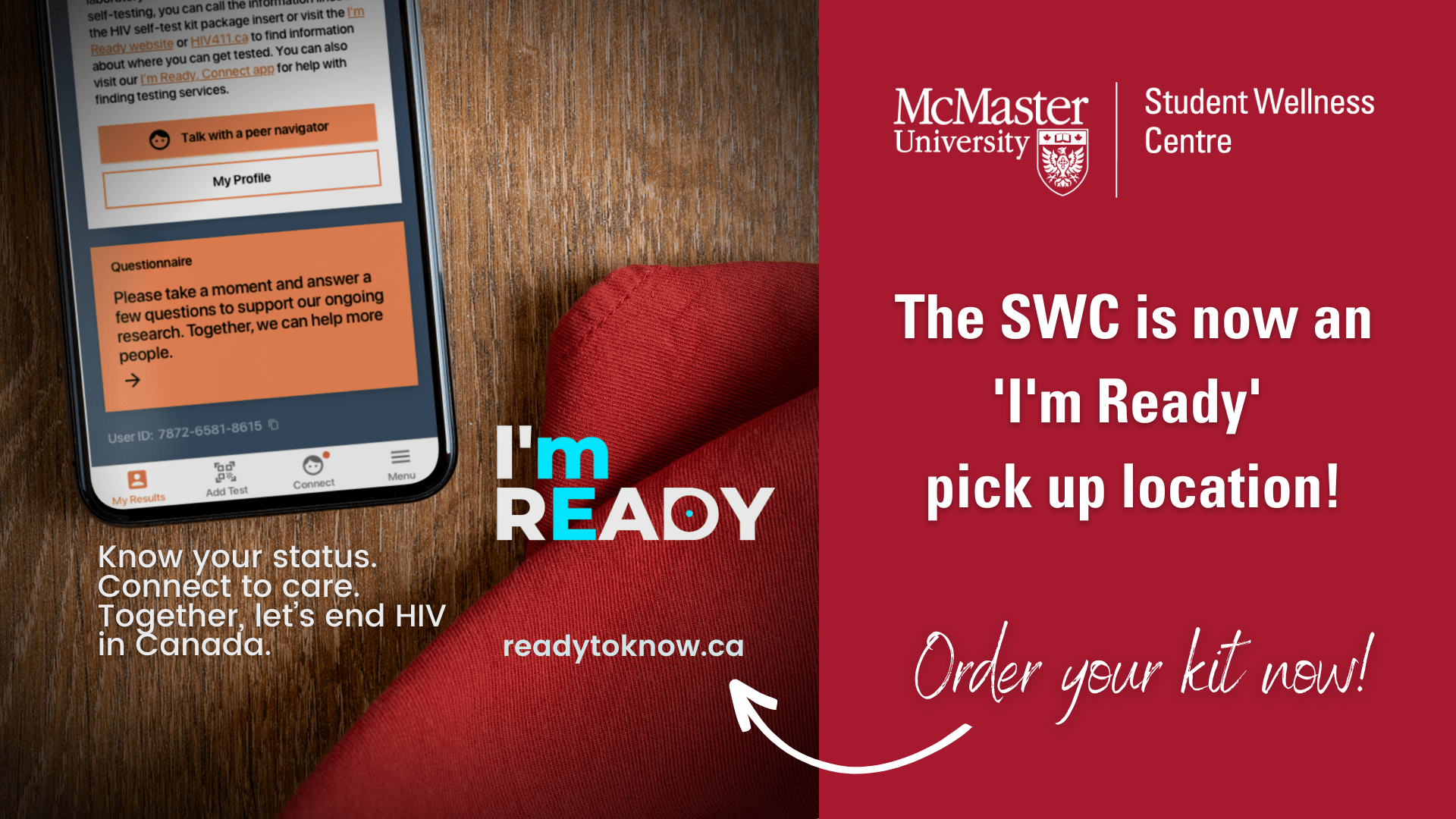
I'm Ready: HIV Self-Testing
The SWC became a proud to be a pickup location partner for the I’m Ready research program. Learn More Here.

Free Flow x Period Equity Project
Tabling event for students to learn about the Period Equity Project on McMaster’s campus. In partnership with the Okanagan Committee.
Bonus: If they signed up for a free Diva Cup in the Fall semester, they could pick it up at the event!
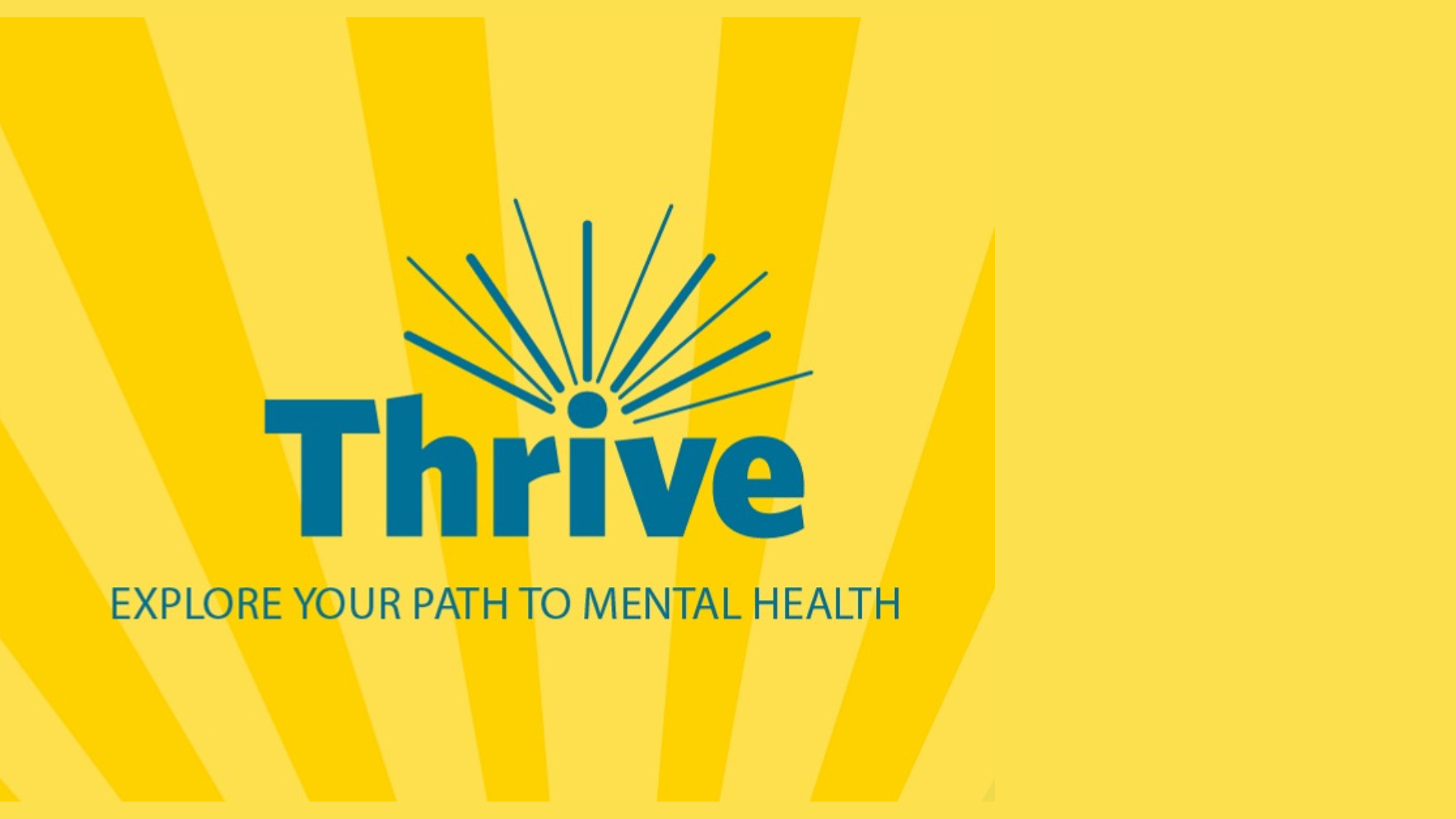
Thrive Week 2023
An opportunity for students to incorporate well-being activities into their daily routines. The SWC had Triple C Farm visit, had a Hot Chocolate giveaway, and launched our new therapy dog program.
Check out a full list of Thrive Week events & activities here.

Let's Talk About Sex! Sexual Wellness Trivia
Hosted by the SWC, SSC, and Residence, it was a fun learning environment for First Years to learn about sexual health, resources, and win some prizes too!

Biscuit the Therapy Dog
New Wellness Program introduced in Winter 2023. Biscuit and her wonderful therapy partner Rev. Allison Barrett will be visiting the Student Wellness Lounge once a month.

And How Does that Make You Feel?
The “…And How Does That Make You Feel?” initiative was an opportunity for to help make the process of seeking counselling feel more normalized and less intimidating. Students anonymously shared their experiences, expectations, and feelings about counselling.
A Mental Health Wellness Outreach Team Initiative.
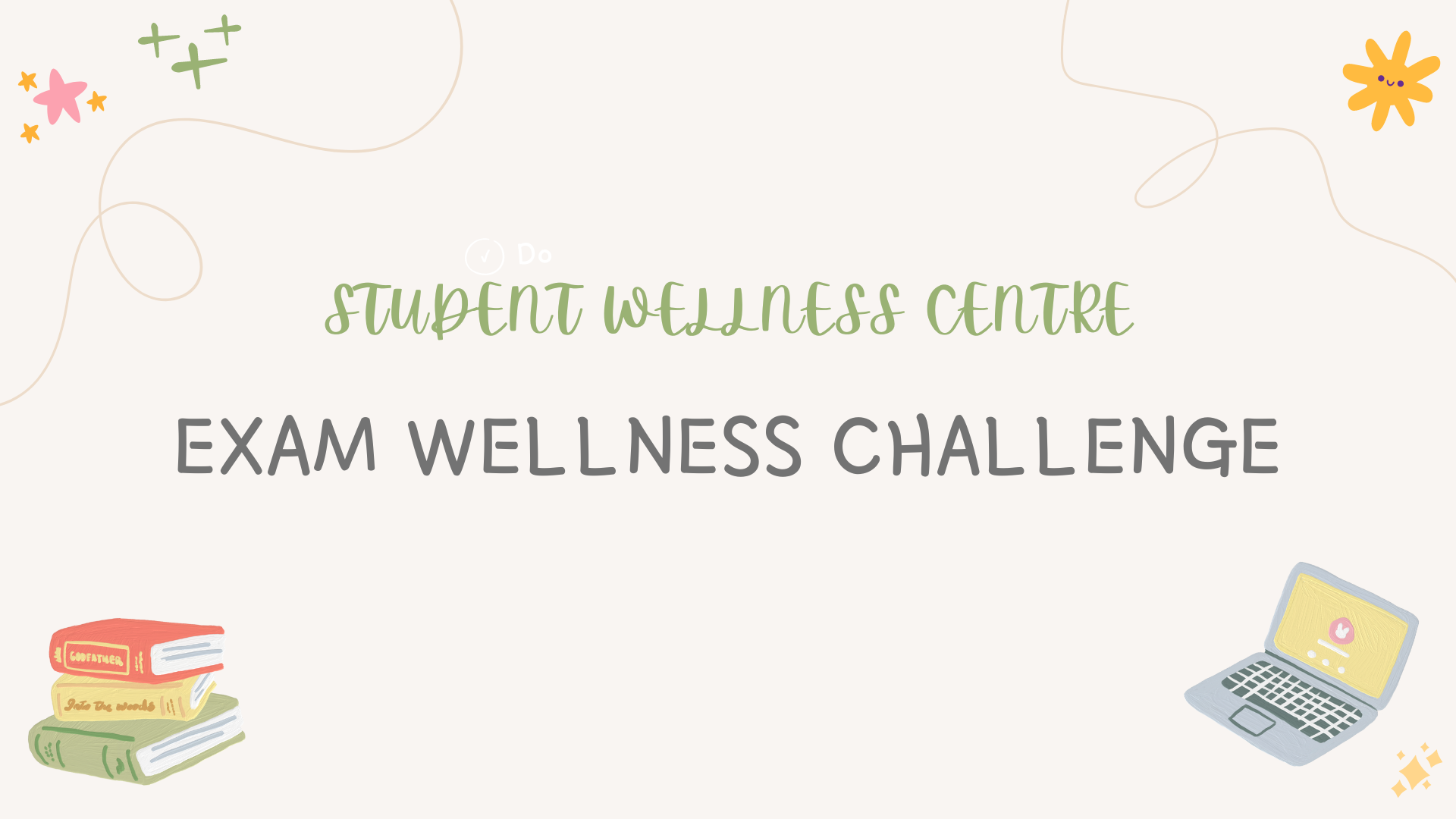
Exam Wellness Challenge
A strategy for practicing self-care during exam season. Students sign up for 1 of 3 challenges (Sleep, Social Bonding, or Active Living) and complete a series of activities between December 12-19. Students also receive mental health / self-care reminders over text daily!
This project was led by the SWC’s Work Study Students.
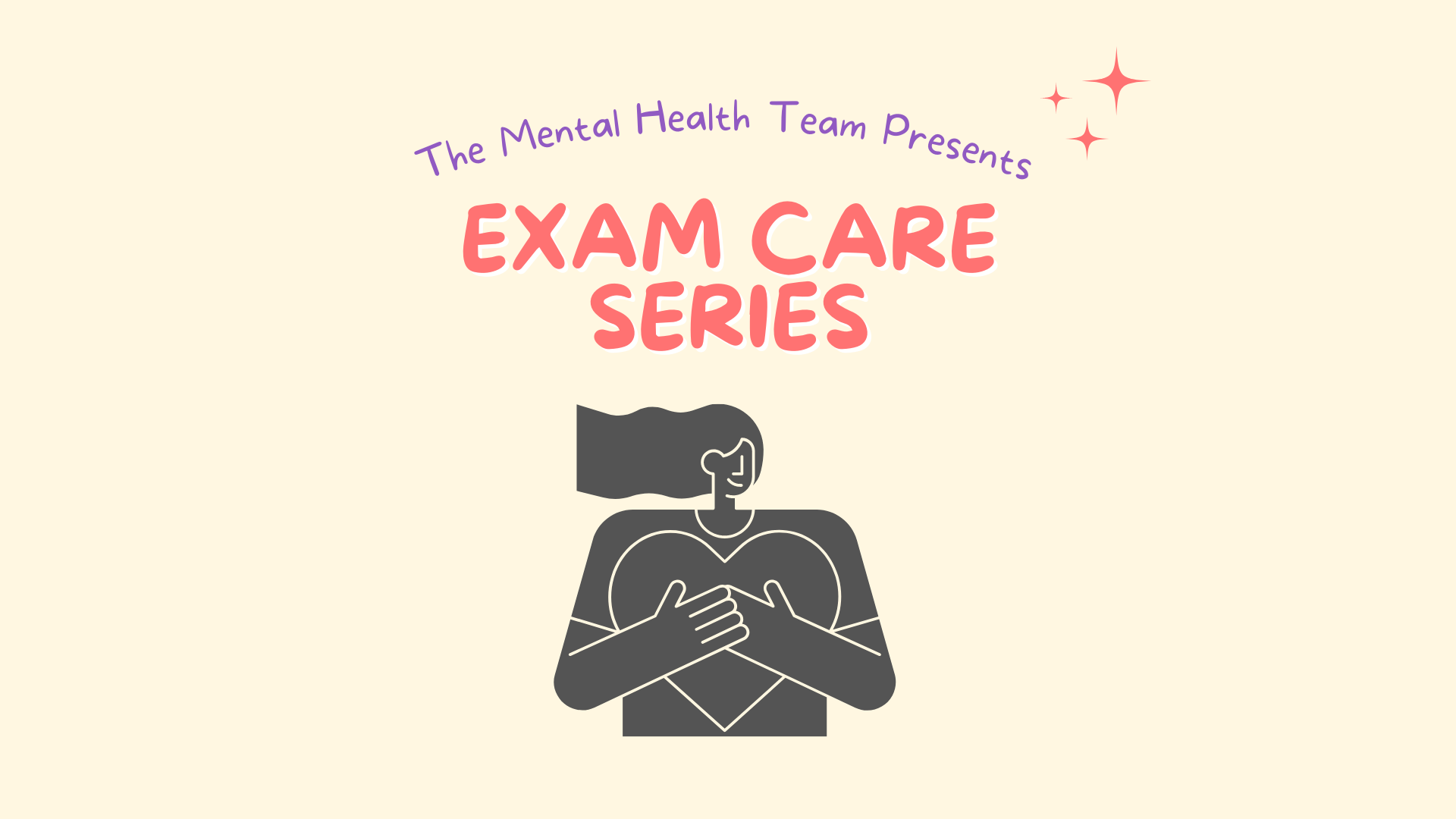
Exam Care Series
A Social Media campaign addressing the numerous challenges students may face during exam season. Topics included: Self-Compassion, Caffeine Intake, Managing Stress, Substance Use, and Burnout.
A Mental Health Wellness Outreach Team initiative. In collaboration with the Substance Use Outreach Team.
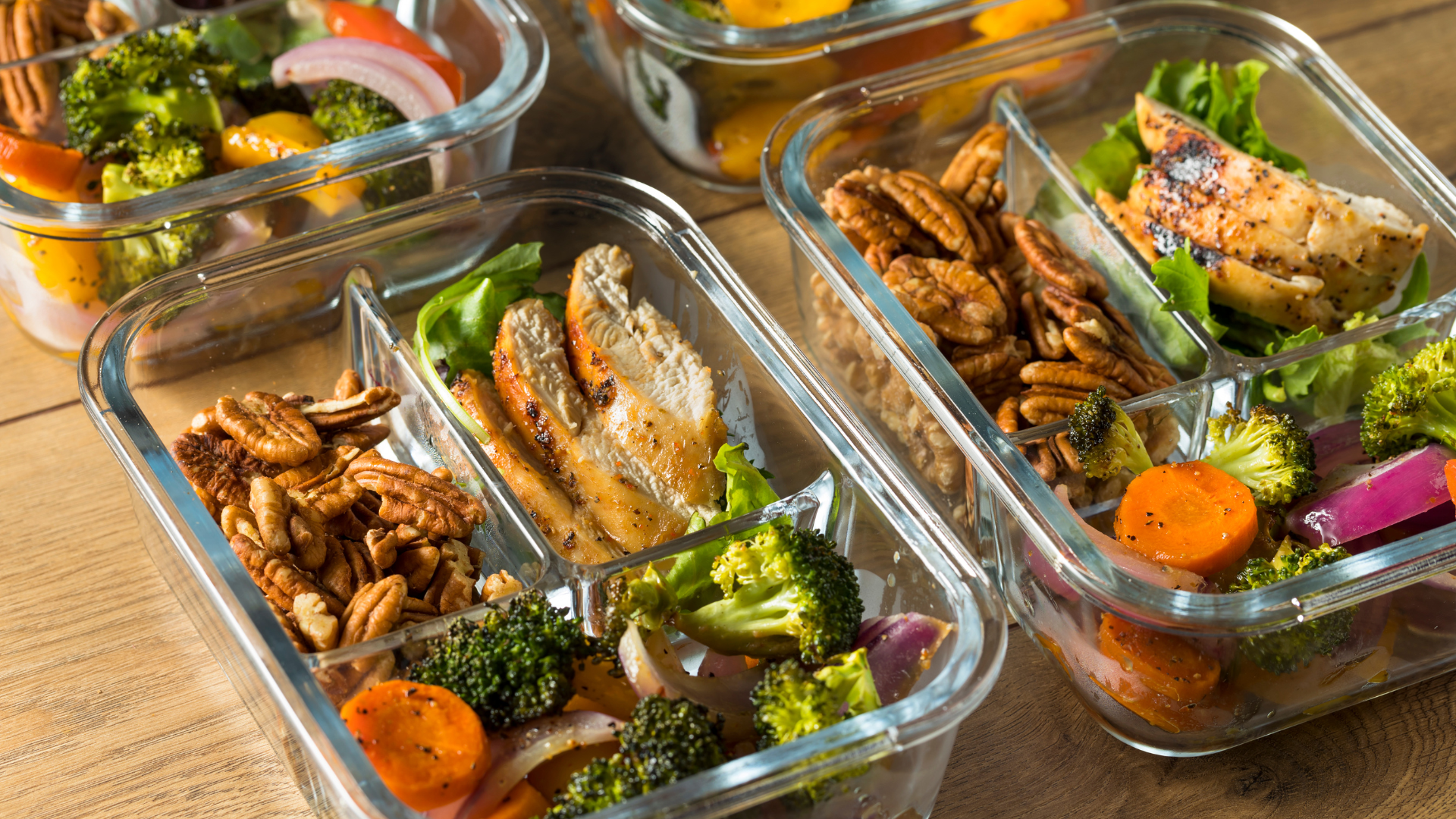
Meal Prep Series
Social Media campaign outlining 3 components of meal prepping.
- Cheap Eats – How to Buy Food in Hamilton like a local
- Food Storage
- Recipe Inspiration
A Healthy Living Wellness Outreach Team initiative.

November Cook Along
Students registered to learn cooking skills and make some delicious Ginger Tofu Noodle Soup, all for FREE!
In collaboration with MSU Food Collective Centre.
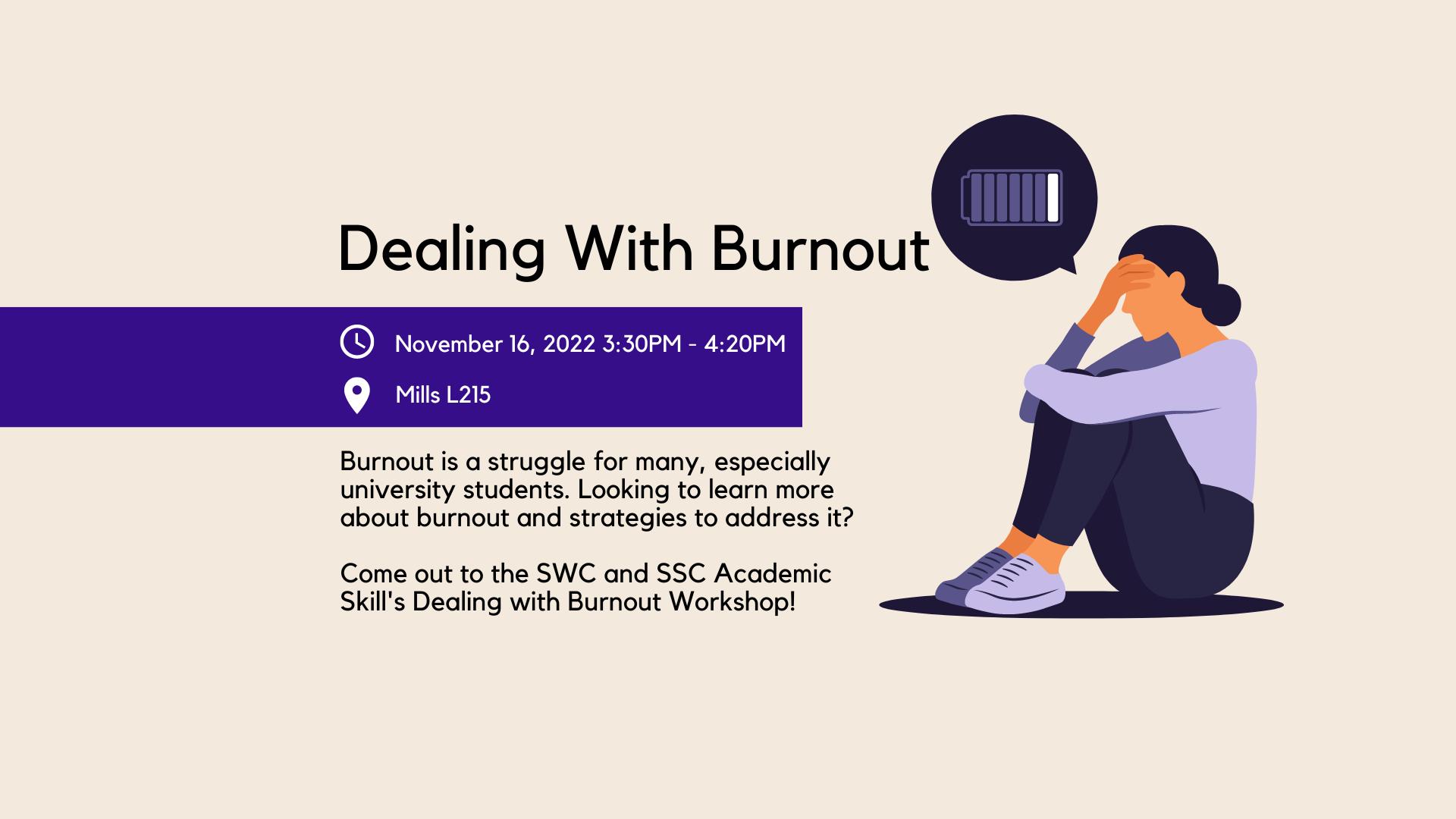
Dealing with Burnout
Burnout is a struggle for many, especially university students. The SWC and SSC Academic Skill hosted this event to help students learn more about burnout and strategies to address it.
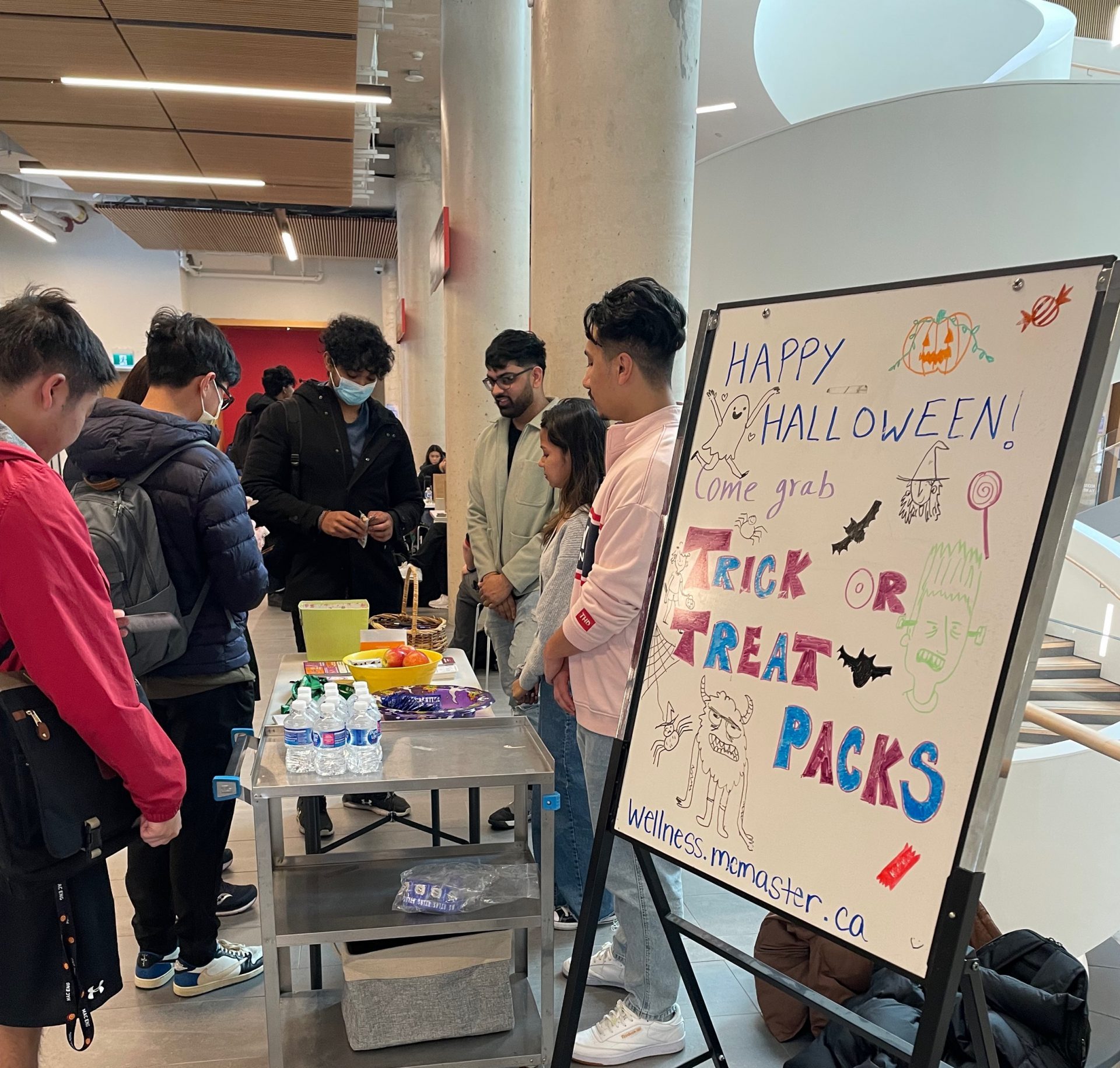
Trick or Treat Packs
Trick-Or-Treat packs were handed out for Halloween weekend. Each pack was filled with harm reduction information, snacks, water, and sexual health supplies.
A Substance Use HeaWellness Outreach Team initiative.

Spooky Season Mocktail Night
Archway, Residence Life, and the Student Wellness Centre hosted a Halloween themed Spooky Mocktail Night in the lounge. It was a fang-tastic night of spooky mocktails, candy, prizes, and fun activities while learning about safer substance use!

Fall Harvest Festival Check it out!
The Harvest Festival allowed students to recharge after Reading Week and get ready to take on upcoming mid-terms, tests, assignments and everything else the upcoming months have to offer. Combining a mixture of fall-themed activities, treats and more, the Harvest Festival was an engaging way to learn about services that can support your well-being in university.
In Partnership with the Student Success Centre.

Safe & Sexy
Students answered skill-testing questions to win sexy prizes like: condoms, lube, and more! This was a one day drop in program with over 300 Safe & Sexy bags handed out. Each bag included comprehensive print materials educating students on topics such as contraception, STIs, consent and more.
A Sexual Wellness Outreach Team initiative.

Mochi & Mochii
Campus Celebrity Mochii visited the SWC Lounge, and MSU First Year Council handed out delicious mochi snacks! It was a fun afternoon where students could destress during exam season.
Triple C Farm Visit Learn More about Triple C
Students got to hangout with the residents of Triple C Farm, including goats, an alpaca, donkey, and miniature horse! This event was intended to reduce stress during exams.
Triple C Farm is a fully functional animal sanctuary as well as a volunteer program for adults with developmental disabilities.

Exam Wellness Challenge
The SWC Exam Wellness Challenge runs each semester as a way to help students better manage stress and anxiety during exam season. It features 3 wellness based challenges (Sleep Challenge, Nourish Your Body Challenge, & Active Living Challenge), that when completed by registrants, gives them a chance to win a grand prize.

Pride Social
The SWC celebrated Pride in our Student Wellness Lounge. The gathering featured free snacks, a round of Pride themed trivia, and the opportunity to connect with other McMaster students who are also a part of the 2SLGBTQIA+ community.

Pop-Up Recess
The SWC hosted a pop-up recess on campus, having participants play four square, ninja, hopscotch, volleyball, frisbee, and other games. Free snacks were also offered. It was a great way to get outside and stay active!

Sex Talk Tuesday Check it out!
A weekly series that aims to answer all of your sexual health questions! Students submit questions for future #SexTalkTuesdays. Answers to questions will be posted on a weekly basis in our stories and in our posts. *All submissions of questions will be kept anonymous*

The Great Trail Guide Check it out!
This campaign featured monthly trails in Hamilton worth exploring; detailing where they were, how to get there, level of difficulty, and more! Submissions from social media followers for best trails were collected, and participants were entered to win a gift card.
An Active Living Wellness Outreach Team initiative.

Snack Event
Free healthy snacks and food trivia in the SWC Lounge during exams.
A Healthy Living Team Initiative.

#ShopAround
There are LOTS of contraception options out there, and each one works differently. To find the method that will work best for you, it’s important to pick the contraception characteristics that are important to YOU. The #ShopAround campaign featured social media posts and posters around campus to make students aware of their contraception options.
A Sexual Wellness Outreach Team initiative.

April Market Extravaganza
Students could register to meet on campus and take the bus together to the Hamilton market. There, they received a $10 gift card that they were able to spend while exploring all that the Hamilton market has to offer.
While at the event, there was also a fun scavenger hunt and those that took part in the hunt had the chance to win a $25 gift card to Hospitality Services.
A Food Literacy Wellness Outreach Team initiative.

March in March
March in March was a program to created to develop community around movement! Participants registered as a small team or individually (to be added to a team) to work towards getting steps and completing small challenges to get points. The team with the most points won a $25 gift card for Hospitality services for EACH participant on the team!
An Active Living Wellness Outreach Team initiative.
Thrive Week Learn More
Thrive Week was truly a collaboration for all of the McMaster Community. Hosted by Human Resources Services, Student Wellness Centre, and McMaster Okanagan, with help from the McMaster Students Union and other colleagues, Thrive Week gave everyone at McMaster opportunities to Thrive!

Move the Body, Heal the Mind
A workshop on how exercise can improve your mental health, sleep and focus, will support you in your journey of adding more movement to your day. With guest speaker, Dr Jennifer Heisz, who presented some of the key takeaways from her new book ‘Move the Body, Heal the Mind’.
An Active Living Wellness Outreach Team initiative.

Counsellor's Corner Learn More
Welcome to Counsellor’s Corner, a series that introduces you to our counsellors and their favourite self care resources!

Free Flow Learn more about the Period Purse
The Student Wellness Centre launched ‘Free Flow’, our first reusable menstrual product giveaway during the 2022 Winter Semester.
Through this campaign, McMaster students had access to various brands and sizing of menstrual cups, period underwear, and washable pads. All items were donated to the SWC by Period Purse.
Find Your Way Back
In celebration of Black History Month the McMaster Museum of Art and the Student Wellness Centre came together to bring Black students at McMaster a mindful and creative collage workshop facilitated by stylo starr – a Hamilton based visual alchemist, creative movement facilitator and curator.
Consisting of mindful breathing exercises, gentle seated stretching and a collage making session where participates were encouraged to create spaces that create a sense of liberation and joy, the workshop offered space for uplifting personal well-being and is a chance to tap into your creative mind.

Indigenous Art & Connection to Land
The Student Wellness Centre and the McMaster Museum of Art co-hosted the ‘Indigenous Art & Connection to Land’ Program in honour of National Day for Truth and Reconciliation, residential school survivors, and those who did not make it home.
Through guided looking and reflective exercises, participants engaged with notions of land as represented in work by Indigenous artists from several nations. Participants were connected with art, histories, and issues directly related to the land in which they live and examined their shared responsibility as outlined in the Dish With One Spoon wampum agreement.
Vaccine Hesitancy FAQ
It can be overwhelming to navigate the large volume of COVID-19 vaccine information online, especially if you are unsure about the safety of the vaccine. If you or those around you are hesitant to get vaccinated, it can help to have accurate information in a centralized place. On this webpage, students could find answers to many common vaccine-related concerns.
StepOne Learn More
StepOne was our wellness campaign for Welcome Week 2021. It encourages students, especially those in first year, to prioritize six aspects of wellbeing:
- Self-care
- Finding support
- Community care
- Staying active
- Eating well
- Bedtime basics
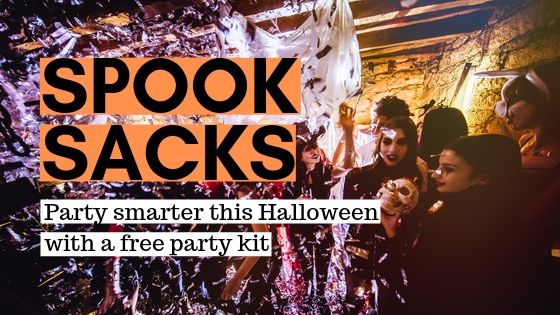
Spook Sacks Learn More
Spook Sacks was an event run on campus and associated campaign to promote harm reduction when using substances like alcohol or cannabis.
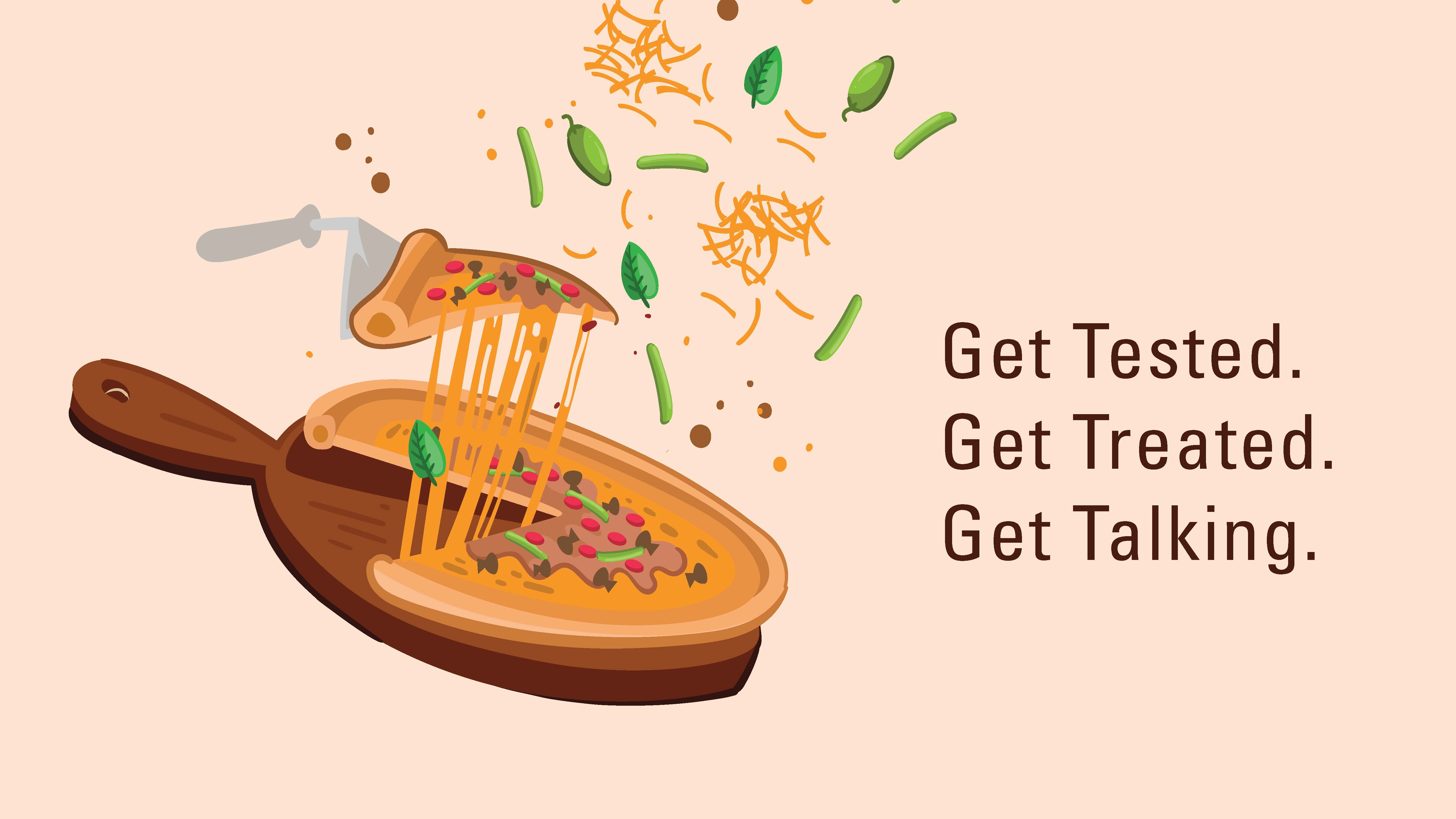
Pee4Pizza Learn More
Pee4Pizza was a free, confidential STI testing day on campus run annually with Hamilton Public Health and campaign to inform students about STI testing.
Ways to Wellness Learn More
The Ways to Wellness campaign outlined some ways to support your mental health and wellbeing among the chaos of student life. Each person’s experience of mental health is unique. Each person’s journey has its own start, path, and destination, but if there is one thing in common, it is that we can create a campus that is supportive, responsive and connected.
Responsible Drinking & Substance Use Learn More
The Responsible Drinking and Substance Use campaign educated students on various strategies that encourage safe, responsible drinking habits. It is important that students feel empowered to make informed choices about drinking, and be made aware of available resources for substance use-related concerns.
Consent Learn More
The Consent campaign was created to help people identify what consent does and does not look like. It is important that students are knowledgeable in this key area of sexual health, and be made aware of available resources for sexual violence-related concerns.
Welcome Week Strategic Priorities More Info
Welcome Week is an exciting time! To get the most out of your experience, it’s important to prioritize your wellbeing. Learn more about wellness information related to McMaster’s Strategic Priorities.
Welcome Week Strategic Priorities - More Info
Supporting Mental Health and Wellness
Student wellbeing and mental health are critical foundations for student success. Whether you’re looking into getting help, have questions surrounding resources, or want to support a friend, the Student Wellness Centre is here to help.
Preventing and Responding to Sexual Violence
McMaster is committed to taking action to prevent and respond to sexual violence. You can find find information on consent and support resources for survivors and allies here.
Responsible Drinking and Substance Use
All events sanctioned by McMaster University during Welcome Week are alcohol- and substance-free to promote the safety and wellbeing of students. If you do choose to use drink alcohol or use substances during Welcome Week, you can learn more about setting limits and the available supports and resources for addressing over-consumption.


